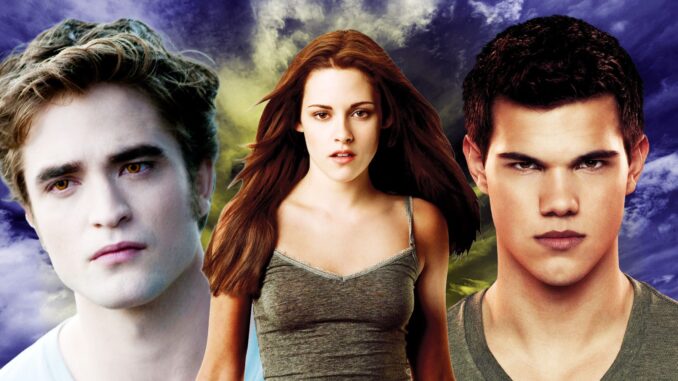
The air around the Twilight Saga has always hummed with a peculiar electricity, a shimmering allure that transcends its initial cultural explosion. For a generation, it was a potent blend of forbidden romance, supernatural intrigue, and the very real angst of adolescence, all bathed in the perpetually overcast skies of Forks, Washington. Years after the final cinematic chapter, Breaking Dawn – Part 2, brought Bella Swan's immortal journey to a seemingly conclusive end, a new whisper began to stir in the shadows of the internet: "Is Twilight Saga 6 real?" This question, like the siren song of a vampire's gaze, beckons us into a nuanced exploration of hope, nostalgia, and the evolving landscape of beloved narratives.
The dream of "Twilight Saga 6" as a direct continuation, a sixth film picking up where the Cullens left off, is a phantom limb ache for many fans. It stems from a deep, abiding affection for the original cast – Kristen Stewart's earnest intensity, Robert Pattinson's tortured allure, and Taylor Lautner's steadfast loyalty. The human heart, even when faced with a completed story, often yearns for "just one more." Perhaps Renesmee's adolescence? New threats to the fragile peace between vampires and humans? The possibilities, in the realm of fan-fiction and fervent hope, were endless.
Yet, the cold light of reality, much like a diamond-skinned vampire in the sun, reveals this specific dream to be largely unsubstantiated. The actors have long since shed their iconic roles, forging diverse and critically acclaimed careers far beyond the Pacific Northwest. Kristen Stewart has carved out a niche as an indie darling and an Oscar nominee, while Robert Pattinson has embraced darker, more complex roles, culminating in his portrayal of Batman. To expect them to return to their teenage personas after a decade would be an immense ask, not just logistically, but artistically. Furthermore, Stephenie Meyer, the saga's creator, has generally moved beyond the core narrative, offering instead tangential works like the gender-swapped Life and Death or the highly anticipated Midnight Sun, which retold the first book from Edward's perspective. These re-explorations hinted at a desire to deepen the existing lore rather than forge entirely new paths for the main characters.
However, dismissing the idea of a "new era" entirely would be a mistake, for the whispers are not entirely unfounded. The "Twilight Saga 6" of fan dreams might be a mirage, but a different, equally significant "New Era" is indeed on the horizon: the development of a Twilight television series. In April 2023, reports confirmed that Lionsgate Television was in early development on a TV adaptation of the books. This is not a sequel, nor is it a direct continuation with the original cast. Instead, it marks a phoenix-like rebirth, a reboot designed to introduce the shimmering world of Forks to a new generation, and perhaps re-engage older fans with a fresh perspective.
This shift from silver screen saga to episodic television represents a significant evolution, both for the Twilight universe and for the broader trend of cinematic reboots. A TV series offers an expansive canvas, allowing for deeper dives into the intricate lore, the nuanced backstories of secondary characters, and the subtle tensions that the films, constrained by runtime, could only skim. Imagine episodes dedicated to the Volturi's ancient history, the various vampire covens' unique customs, or even the detailed shapeshifter mythology of the Quileute tribe. The slower pace of television can allow for a more faithful adaptation of Meyer's prose, preserving internal monologues and intricate relationship developments that were often condensed or cut from the movies.
This "new era" invites both excitement and trepidation. For every fan thrilled by the prospect of more Twilight, there are others who dread the inevitable recasting, fearing that new faces could never embody the magic of the originals. It’s a challenge faced by every beloved franchise that undergoes a reboot: how to honour the essence of the original while forging a distinct identity. The illustrative nature of this moment lies in its reflection of storytelling's own immortality. Like the vampires themselves, stories never truly die; they merely transform, finding new vessels, new voices, and new mediums to perpetuate their narrative bloodline.
So, is "Twilight Saga 6" real? Not in the way many dreamt, as a direct cinematic sequel with our beloved familiar faces. But the "New Era" is undeniably real: a television series poised to rekindle the flame, to reinterpret the foundational myth of Bella, Edward, and Jacob for a contemporary audience. It’s a promise of more moonlit forests, more agonizing choices, and more fantastical romance, proving that the sun might set on one adaptation, but the enduring allure of the Twilight Saga is forever bound to rise again, bathed in the flickering lamplight of a new medium.
